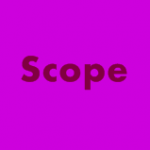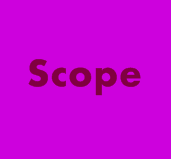The Ultimate Guide About Career & Scope of D Lit Degree:
Welcome readers to the ultimate guide for those interested in pursuing a D Lit degree. In today’s ever-evolving world, the field of literature continues to be a source of inspiration & intellectual growth . As a result getting a Doctor of Literature (D Litt) degree has become increasingly popular among individuals passionate about advancing their knowledge & expertise in this field. In this comprehensive guide, we shall explore the scope, benefits, job prospects, qualities needed for success, future trends, challenges, eligibility requirements, helpful tips, and frequently asked questions related to pursuing a D Lit degree.
I. Understanding the Scope of a D Litt Degree:
A D Lit degree (Doctor of Literature) is an advanced level academic qualification that signifies a high level of expertise and specialization in the field of arts, literature, humanities & social sciences. It goes beyond traditional master’s degrees by emphasizing original research and critical analysis of literary works. The career scope of a D Lit degree is broad & encompasses various specializations like comparative literature, poetry, drama, fiction, literary theory etc. These specializations provide individuals with the opportunity to dive deeper into their areas of interest & contribute to the existing body of knowledge within the field. Like honorary PhD, honorary D. Lit degree is also awarded to the persons with exceptional work in their field of study.
II. Benefits of Obtaining a D Lit Degree:
Pursuing a D Lit degree (Doctor of Letters) offers numerous advantages to individuals passionate about literature and academia. Firstly, it enhances critical thinking skills by encouraging deep analysis and interpretation of complex literary works. This advanced level of analysis allows individuals to develop a deeper understanding of the cultural, historical, and social contexts in which literature is created.
Scope of D Lit degree (Doctor of Literature) Benefits, Jobs, Tips & Comparison with PhD
Secondly, a Litt.D degree equips individuals with advanced research skills. Students in D Lit programs learn how to conduct extensive research, critically evaluate existing literature, and contribute to the academic community through their own original research projects. These skills are highly valued in many industries and can open doors to diverse career opportunities.
Speaking of career opportunities, a D Lit degree can lead to exciting job prospects in various sectors. Graduates may find themselves working in academia as professors, researchers or administrators . Additionally, publishing houses, consulting firms, cultural organizations & media outlets often seek experts with in-depth knowledge of literature to contribute to their projects..
III. Exciting Job Prospects for D Lit Graduates:
The demand for individuals with expertise in literature and related fields is ever-increasing. D Lit graduates can find themselves in a variety of exciting career paths. In academia, they can pursue tenure-track positions as professors or researchers, where they have the opportunity to shape the minds of future literary scholars. Graduates may also find themselves working in publishing houses, where they can contribute to the editing & publishing of literary works. Consulting firms often seek the expertise of D Litt graduates for their deep understanding of literature & critical analysis skills, which can be applied to a wide range of projects. Furthermore, opportunities in cultural organizations, media outlets & government institutions also exist for individuals with a D Litt degree.
All About Job as a Researcher, Researchers Types, Responsibilities, Qualities Needed, Tips
IV. Qualities Needed for Success in a D Litt Doctor of Literature Program:
While a D Lit program offers immense intellectual growth and career opportunities, it is not without its challenges. The journey to obtaining a D Litt degree requires dedication, perseverance, and certain qualities that contribute to success. Analytical thinking is crucial to critically evaluate and interpret literary works, as well as to conduct original research. Strong research skills are also essential, as students are expected to contribute to the existing body of knowledge within their chosen specialization. Passion for literature is a driving force that sustains individuals throughout the program, as it fuels their desire to explore, analyze, and understand literary works. Lastly, effective communication skills are important for presenting research findings, participating in academic discussions, and teaching others.
V. The Future of D Lit Degrees:
As with any field, the field of literature is continuously evolving, and D Lit degrees are no exception. With advancements in technology, the future of D Litt degrees may see changes in research methods and opportunities. Digital tools & databases provide new avenues for conducting research and accessing a wide range of literary works from different time periods & cultures. Collaborative research projects & interdisciplinary approaches are also likely to become more prominent in the future. As the world becomes more interconnected, new literary movements & global perspectives are likely to emerge, presenting exciting possibilities for D Litt graduates.
VI. Challenges Faced by Those Pursuing a D Lit Degree:
While pursuing a D Lit degree is a rewarding endeavor, it also comes with its fair share of challenges. The journey to obtaining this degree requires immense dedication and time commitment. Balancing coursework, researc & personal life can be challenging and individuals may face moments of self-doubt & burn out. However, with effective time management strategies, setting realistic goals, seeking support from peers and mentors & maintaining a healthy work-life balance, these challenges can be overcome successfully.
VII. Eligibility Requirements for Enrolling in a D Lit Doctor of Letters Program:
To enroll in a D Lit program, there are general eligibility criteria that applicants must meet. Typically individuals should hold a master’s degree in a related field , although some programs may accept individuals with a bachelor’s degree (BS) in exceptional cases. Applicants are also required to submit a research proposal out-lining their intended area of study & research interests . Additionally, strong letters of recommendation from professors or professionals familiar with the applicant’s academic abilities & potential are often required. It is crucial to thoroughly research and understand the specific requirements and prerequisites of the D Lit programs one is interested in to ensure a successful application.
How To Write a Research Paper, Thesis or Dissertation? Super Tips
VIII. Helpful Tips for Prospective Doctor of Literature (Litt D) Students:
For individuals considering pursuing a D Lit degree, it is important to approach the journey with a well-thought-out plan and effective study techniques. Developing a study schedule that allows for consistent progress, breaking down larger tasks into manageable chunks, and seeking guidance from peers and mentors are valuable strategies. Additionally, utilizing resources like libraries, online databases & academic journals can enhance the research process . It is also crucial to maintain a healthy work-life balance & engage in self-care practices to avoid burnout.
Guideline & Tips For PhD Students in Urdu & English
IX. D.Litt Vs PhD:
D.Litt & PhD are both prestigious academic degrees that individuals can pursue to enhance their expertise in their respective fields. D.Litt, short for Doctor of Letters, focuses on the humanities & liberal arts disciplines, while PhD, or Doctor of Philosophy, encompasses a broader range of subjects. While D.Litt emphasizes research & scholarship in literature, languages and cultural studies, a PhD offers a more diverse range of research opportunities across various academic disciplines. Both degrees require significant dedication, rigorous study & the completion of a doctoral thesis. Lastly, in many countriees D Lit is considered post doctoral degree. Whether you choose to pursue a D.Litt or a PhD, both degrees open doors to exciting academic & research careers.
Scope PhD (Doctorate Degree), Career, Job Prospects, Eligibility & Thesis Tips
X. Conclusion:
Pursuing a D Lit degree offers individuals the opportunity to immerse themselves in the world of literature, advance their critical thinking and research skills and open doors to exciting career prospects. D Lit degree is for extra creative and ultra genius persons and it is the key of highly paid jobs in academia and research centers. I you want to get respect in the society and your colleagues then do go for D Litt degree. Whether you are a literature enthusiast or seeking to make a meaningful contribution to the field, a D Litt degree can be an enriching and fulfilling academic journey. So, take the leap and explore the possibilities of pursuing a D Lit degree for personal and professional growth.
How to Write a Research Thesis or Dissertation ? Tips


